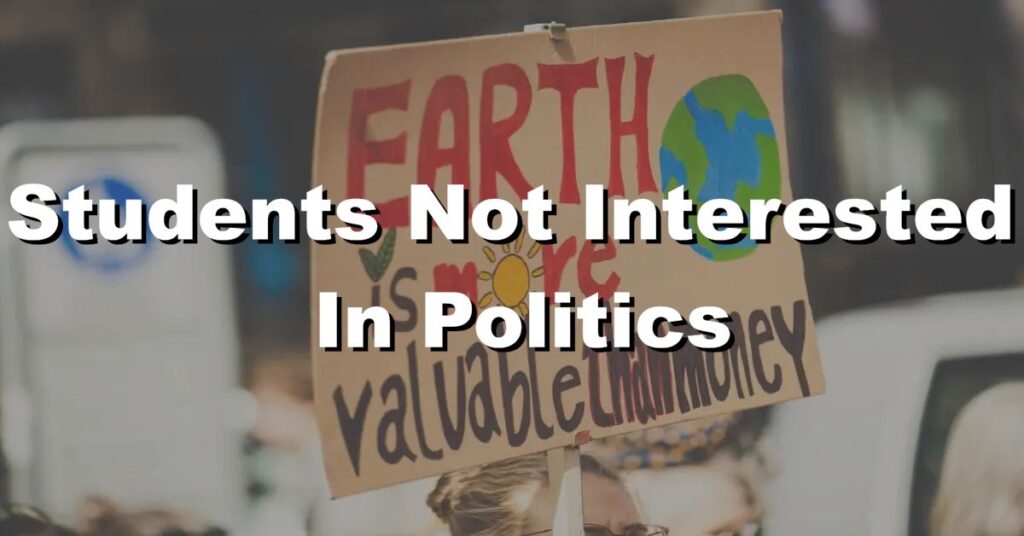It is common for young people, especially students, to feel disengaged from politics. This blog post will explore the reasons why students may not be interested in politics, including factors such as lack of education, negative media coverage, and a sense of disillusionment with the political process.
The Impact of Social Media and Technology on Political Awareness
Social media and technology have had a profound impact on political awareness. Platforms like Facebook, Twitter, and YouTube have provided individuals with unprecedented access to information and facilitated the spread of political content. They have allowed people to engage in discussions, share their views, and connect with like-minded individuals, fostering political communities and movements.
However, the influence of social media on political awareness is a double-edged sword. While it has democratized the flow of information, it has also contributed to the spread of misinformation, echo chambers, and polarization. The challenge lies in promoting critical thinking and media literacy to help individuals navigate the vast amount of political content online, discern reliable sources, and engage in informed discussions.
The Role of Education in Political Literacy
Education plays a vital role in fostering political literacy and equipping individuals with the knowledge and skills necessary to engage in politics. By including civic education in school curricula, students can learn about political systems, rights and responsibilities, and the importance of active citizenship.
Political literacy encompasses understanding political processes, analyzing policies, and critically evaluating political messages. It encourages individuals to engage in informed debates, question authority, and make informed decisions. Education should also emphasize media literacy to equip individuals with the ability to navigate and evaluate political information from various sources.
By promoting political literacy, education empowers individuals to participate meaningfully in democratic processes and contribute to shaping the future of their societies.
Understanding the Political Views of Younger Generations
Understanding the political views of younger generations is essential for fostering meaningful dialogue and ensuring their representation in political processes. Younger generations often have distinct perspectives shaped by their unique experiences, values, and concerns. It is important to recognize the diversity within this group and avoid generalizations.
Factors such as globalization, climate change, and social justice issues often feature prominently in their political priorities. Engaging with younger generations requires creating inclusive spaces for dialogue, actively listening to their concerns, and valuing their contributions. It is crucial to involve them in decision-making processes and provide platforms for their voices to be heard.
By understanding and respecting the political views of younger generations, we can foster a more inclusive and representative political landscape.
The Connection Between Political Disillusionment and Lack of Representation
Political disillusionment often arises from a perceived lack of representation and the failure of political systems to address the needs and concerns of marginalized groups. When individuals feel that their voices are not heard or that the political establishment is unresponsive, they may become disenchanted and disengaged.
Lack of representation can lead to a sense of exclusion and a loss of faith in democratic processes. To address political disillusionment, it is crucial to prioritize diversity and inclusivity in political institutions and ensure that marginalized groups have a seat at the table.
Creating opportunities for meaningful participation, amplifying underrepresented voices, and implementing policies that address systemic inequalities are essential steps in rebuilding trust and restoring faith in political systems.
Strategies for Engaging Students in Political Discourse
Engaging students in political discourse requires creating a supportive and inclusive environment that values their perspectives and encourages their participation. Incorporating interactive and experiential learning opportunities, such as mock elections, debates, and community engagement projects, can make politics more tangible and relatable for students.
Providing space for open discussions, respecting diverse opinions, and promoting critical thinking help foster a culture of dialogue and inquiry. Integrating current events and real-world examples into the curriculum enables students to connect theory with practice and understand the relevance of politics in their lives.
Additionally, guest speakers, workshops, and field trips to political institutions can expose students to different facets of political life and inspire their engagement. By actively involving students in political discourse, we empower them to become informed, active citizens who can contribute to shaping the future of their communities.
Conclusion
In conclusion, there are many reasons why students may not be interested in politics, including a lack of trust in political institutions, a feeling of disconnection from the political process, and a lack of education and awareness about political issues.
Addressing these issues and finding ways to engage students in the political process is important for promoting greater civic engagement and participation.

